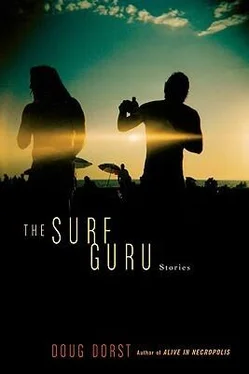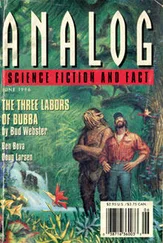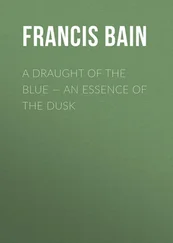She is biting her lip again. “You know I have made a lot of money,” she says. She waits for me to nod before she continues. “I want you to visit Mamá tomorrow. There is a surprise for both of you.”
Her name , I think. Her name, the way it should be, the way she would have wanted it. I feel like dropping this crate and running to the cemetery now. But then I think: San Humberto would frown on such a tainted monument. He would curse it.
“No,” I say.
She looks surprised. “It is a gift,” she says. “For both of you.”
“I do not want your mother’s grave defiled by whore money,” I tell her.
The slap hits me before I see her arm move. My eyeglasses, bent, hang from one ear. Ysela clenches her teeth and shakes with anger. “You haven’t changed,” she says. “You’ll never change.” She grabs an overripe mango and heaves it into the wall behind me. Pieces of the fruit spatter on the back of my head and neck.
“I have told Lars I am finished working for him,” she says. “I am going to be the new schoolteacher.”
My voice is louder than I intend. “What can you teach children? How to shame their fathers?”
She stomps away, then stops in the middle of the road. “You think you are San Humberto Himself!” she shouts. “You are not! You are an old and drunken fruit vendor, not a saint and not a father!”
I want to go after her, but I do not know what I would say. I put on the glasses again and see that people have come out onto the road to stare. I take the glasses off. I cannot watch them watching me.
I sit on an empty crate and bite into a lime. The sour juice floods my mouth. I bite again, and again. I bite, I sit, and I stare straight ahead at nothing. I do not even blink when Lars’s monkey snatches the fruit out of my hand and runs away, tittering.
I am dry-throated and dripping with sweat when I get to Rubén’s tree. My pulse drums in my ears. I sit on a flat mossy rock and stare up into the branches, but I can see no shadow, hear no movement. The only sound is the shrill cry of a chachalaca defending its nest. I wait, trying to think of what to say. It is difficult. I feel it has been years since I have said the right thing to anyone — not even to the saint, in my prayers. Finally, this comes out: “Rubén, I do not speak to you as your father but as a man. I am sorry for all I have done and all I have failed to do.”
The apples fly. I close my eyes and let them find their marks. When I arrive home, I count the new bruises. Seventeen in all. One for each year of my son’s life.
It is time. The last traces of sunset have disappeared and the gallows is lit only by the flickering torches on the roofs. We are all gathered in the square, packed in tightly, breathing on each other. I look through the crowd for Rubén, hoping, but I do not see him. It occurs to me that I might not recognize him if he were here. Would he have a beard? Would he be taller than I am? Would he be thin and weak from a diet of apples and insects? My heart drums. I feel feverish. I cannot find Vargas, either. I do not want to be here, alone in this crowd.
A young man climbs up the frame of the gallows and leans out over the crowd, holding on with one hand. This is Urrieta, who runs Lars’s cochineal farm and likes to brawl in the bar. He pumps his free hand in a fist. “Give us the bandit!” he shouts. “Give us the bandit!” A twisted, gap-toothed grin spreads across his face as the crowd takes up the chant. I see Lars standing on the terrace of the hotel that overlooks the square, shouting along, beating the railing with his fists, while one of his youngest whores runs a comb through his yellow beard and the monkey bounces and screeches. Ysela is on the terrace with them, but she stands apart from them, scanning the crowd with her arms folded over her chest. I wonder if she is looking for me.
The door to the police station opens, but no one comes outside.
Underneath the shouts I hear Vargas’s voice and his heavy breathing, coming closer. “Pardon me. Pardon me. Pardon me.” He pushes his way into the space beside me. He is covered in sweat and dirt. He wipes his forehead, leaving a streak of clean.
“Where have you been?” I ask him.
“I had to bury Ayala right away, before the hyenas are set free. I did not want—”
“Ayala is dead?”
“Yes.”
“How?”
“El Gris strangled him through the bars.”
“Ah,” I say. “One last kill. The demon-bandit could not resist.”
“No,” Vargas says. “Ayala begged him.”
“Then may San Humberto have mercy on Ayala’s soul,” I say. “He did not deserve to be buried.” I find myself getting angry. Why should Ayala get away so easily when the rest of us have to stay here and hurt?
“Do you want to know what I think?” Vargas says quietly, with his head down. “I think it was an act of kindness.” When he lifts his head, I see tears in his eyes. He wipes them away with his fat, callused fingers and suddenly I feel very old and lost. Living was so much easier long ago — when husbands and wives stayed together, when children respected their parents, when blond strangers did not control our town, when we had nothing to fear but the infrequent visits of El Gris.
The crowd quiets as the white-haired monsignor walks slowly out of the police station and up the wood-plank steps that lead to the gallows. Swinging a censer, he chants San Humberto’s Creed in the old sacred tongue. He leads us all in the Gestures of the Sacred Bones. The Festival has begun.
The mayor follows in the monsignor’s path, and then the chief of police and his two sergeants. El Gris emerges from the station and plods ahead, flanked by two officers who guide him forward. His hands are shackled behind his back. He does not look so fearsome now that they have shaved his head; he looks tired, spent. Still, the crowd gasps and ooohs and aaahs , just as they did when they saw Madalena — my wife — walk down the aisle of the cathedral in the emerald-green wedding dress Lars bought her.
Vargas nudges me. “If I were in charge, I would not have cut off his hair,” he says. “His name no longer fits. What is he now? He is nothing.”
El Gris is surrounded by policemen on the long scaffold. One of them is young Séptimo, who played with Ysela when they were children. There have been several nights when Séptimo has woken me up in the street and walked me home. He is kind and polite, not yet corrupted by age and money and other people.
This is what I imagine: El Gris jumping down from the gallows, catching a pistol thrown to him by a comrade hidden within the crowd, then running to a ready horse, his gun blasting away and streaking the air with lead, the police awestruck and fumbling. A stray bullet ripping through both Lars and the monkey in his arms, and the two of them tumbling from the terrace and landing, twisted, in the dirt. The mare’s hoofbeats resonating in my chest as she speeds El Gris to safety outside the walls of our corrupted city.
Perhaps I am the one who will throw him that gun.
But El Gris makes no move to escape. He stands still while Séptimo, on the chief ’s command, tightens the noose around his neck. The mayor motions for quiet. “As San Humberto punished evil, so we punish evil in His name. Before you is the infamous outlaw El Gris. Countless people have tried to bring him to justice and have failed. But we have succeeded, we, the citizens of Ciudad San Humberto, especially our good friend Lars Jarlssen and the young and beautiful Ysela María Rivera de los Pozos.”
Ysela? I think as the crowd roars approval. What have I missed?
El Gris looks up at my daughter and fixes his eyes on her, as if he wants her to be the last thing he sees. It is possible that his lips move, but I cannot see clearly. As Séptimo reaches for the lever, Vargas squeezes his eyes shut. So do I. First there is silence. Then I hear the trapdoor slap and the rope jerk taut, and then the wood creaking as the bandit swings, dead, and the voices of the city rising all around me.
Читать дальше












